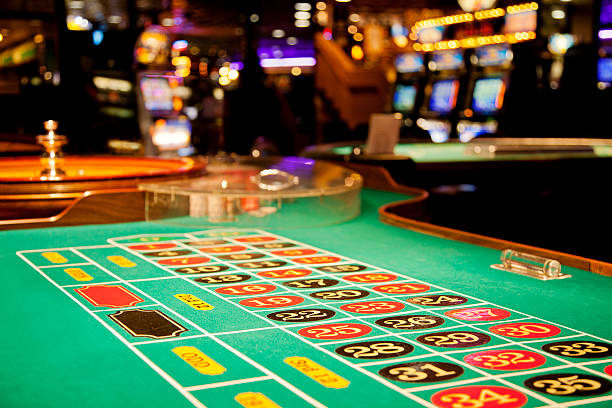In what way Gaming Experiences Represent the Mankind's Existence

Casino games have long been a staple in human culture, offering not just entertainment but a fascinating reflection of our aspirations, ambitions, and concerns. From the turning reels of a slot machine to the tactical play of poker, these games represent a spectrum of human emotions and incidents. At their core, casino games are not just a chance to earn cash; they are a snapshot of life itself, where danger and gain converge and luck can change in an eye blink.
As players gather around tables or sit in front of vibrantly illuminated machines, they participate in a ritual that transcends mere gambling. These games mirror our instinctive desires for relationships, adventure, and the search for fortune. They also reveal deeper truths about human psychology, such as our relationship with luck and the thrill of risk. In exploring casino games, we reveal not only the rules of play but also the rich tapestry of the human journey, showcasing our intertwining narratives of aspiration and reality.
The Psychology of Gambling
Wagering is deeply rooted in human psychology, appealing to various emotions and desires. The excitement of risk-taking is a core aspect that attracts participants, whether it's thrill of spinning a roulette wheel or the anticipation of drawing a winning card in poker. This adrenaline is often compared to other forms of thrill, as the uncertainty of outcomes elicits a unique psychological response. Gamblers often become entranced by the chance of winning big, leading to an almost magnetic draw toward casino games.
Additionally, a crucial component of the psychology behind gambling is the concept of optimism and ambition. Players often nourish fantasies of financial freedom and the opulent lifestyle that can accompany winning. This hope fuels their continued participation in gambling, as it provides a sense of meaning and the belief that a life-changing win could be just one wager away. The story of beating the odds and finding success resonates with many, strengthening their commitment to play and engage with these games.
Lastly, social aspects play a significant role in gambling psychology. Gambling venues are designed to foster social interaction, where players gather to share the journey of wins and losses. This communal aspect not only amplifies enjoyment but also affects behavior, as individuals often imitate the actions of others in their vicinity. The social validation found in shared excitement can enhance the emotional experience, making casino games a reflection of not just personal desires but also shared involvement within the gambling community.
## The Dual Nature of Risk and Reward
Gambling activities embody the subtle balance between danger and gain that resonates deeply with human psychology. The excitement of placing a wager is often accompanied by a jolt of energy, as participants are confronted with the chance of a huge payout, yet cognizant of the risk to suffer losses. This twofold experience reflects a core aspect of life: the choices we make often come with built-in risks, and the chase for gain can push us to take chances we might not otherwise consider. MCW77 In this way, gambling activities echo real-world decisions, enticing gamblers to gamble not just their funds, but also their aspirations.
The allure of big prizes and payouts fuels a sense of optimism, motivating gamblers to dream of a better future that could emerge from a lucky spin of the roulette or dealing of a hand. This hope can motivate individuals to engage in greater risks, urging them to push their boundaries in search of monetary success. However, just as in life, the results of these risks can lead to both victory and failure. The stories of both big winners and those who have faced losses everything at the casino demonstrate the chaotic nature of chance and its significant repercussions on our existence.
Ultimately, the experience of engaging with gambling activities serves as a strong reminder of the human condition. Every session played is loaded with the tension of risk, as players weigh the gains against the dangers. This dynamic not only highlights the thrill that comes with gambling but also unveils the risks that come with the longing for more. As we journey through the complexities of decision-making and results in both the gambling world and in life, we find that the pursuit of risk and reward shapes our sense of self and journeys in significant manners.
Society and Loneliness in Casino Environment
Casino environment is a distinct mix of communal interaction and personal pursuit, reflecting the tensions of individual experience. Gamblers often gather around games, experiencing in the thrill of the game, rejoicing in wins, and commiserating over losses. This communal aspect is crucial, as it fosters a sense of community and bonding among varied groups of people. Regular attendees to gaming establishments may build friendships and develop routines, turning the gambling venue into a alternative home where they experience connected to a greater community of players.
However, the allure of casino games can also result to isolation. As individuals become engrossed in the excitement of playing, they may isolate from personal connections or fail to engage with the environment outside the casino. For some, the search of a jackpot can overshadow real relationships, leading to loneliness. The situation of being surrounded people yet experiencing solitary is not uncommon, as the focus shifts from collective fun to the individual stakes of each player’s journey.
This interplay of society and isolation creates a rich tapestry that defines casino atmosphere. It showcases the intricacy of human interactions, where joy and sorrow exist together. Casinos serve as both a sanctuary for social interaction and a platform for individual struggles, demonstrating how deeply connected our desire for connection and the personal quest for wealth can be. In navigating this environment, gamblers confront their own stories—seeking both the thrill of the game and the fellowship of fellow gamblers, eventually reflecting the broader spectrum of human experience.

